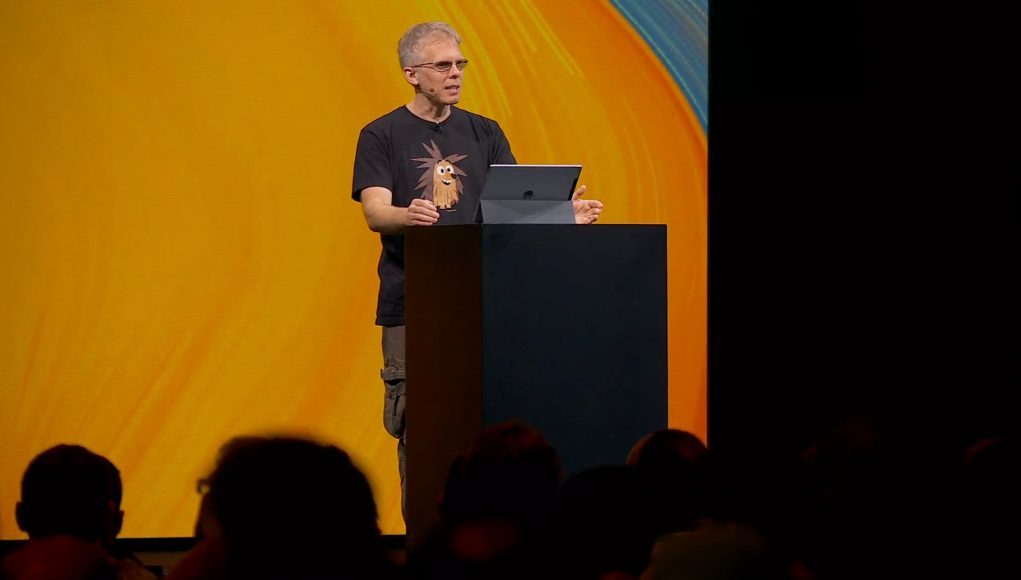Today at Oculus Connect 6, CTO John Carmack dove into the work the company has done on Oculus Link, the Quest feature which will soon allow the headset to tether to PC to play Rift games. Today this requires a USB3 cable, but the natural next step, Carmack said, is that this will eventually be wireless.
Although Oculus Link requires a tether, it’s effectively a ‘remote’ rendering solution, Carmack explained today during his keynote presentation, which means the type of link between the headset and the PC doesn’t really matter so long as it has the necessary bandwidth, latency, and consistency.
While Oculus chose to go with a tether for Oculus Link as a “first step” (thanks to consistent bandwidth and latency), Carmack was up front that the work is headed toward a wireless solution.
“Clearly we’d like this to work on Wi-Fi eventually,” he said, as he went on to speak about some of the tweaks they’d likely undertake to make the Oculus Link rendering solution work best over a wirelessly.
While rotational tracking on Quest with the current Oculus Link solution is nearly identical in latency to Rift S, positional tracking and controller tracking does have some added latency, Carmack said.
Some of that could be further improved, he said, especially if Oculus can get lower level access to the headset’s underlying hardware. Doing so would allow them to build alternate video architectures which could be more suited to remote rendering, further reducing the latency. From Carmack’s discussion, it seemed this is something the company will continue to pursue.
Though Oculus is clearly happy enough with the performance of this solution when rendered by a PC in your home, cloud rendering is another matter. Carmack said that he doesn’t currently see a clear path on making VR cloud rendering viable, owed to both increased latency and more inconsistency.







